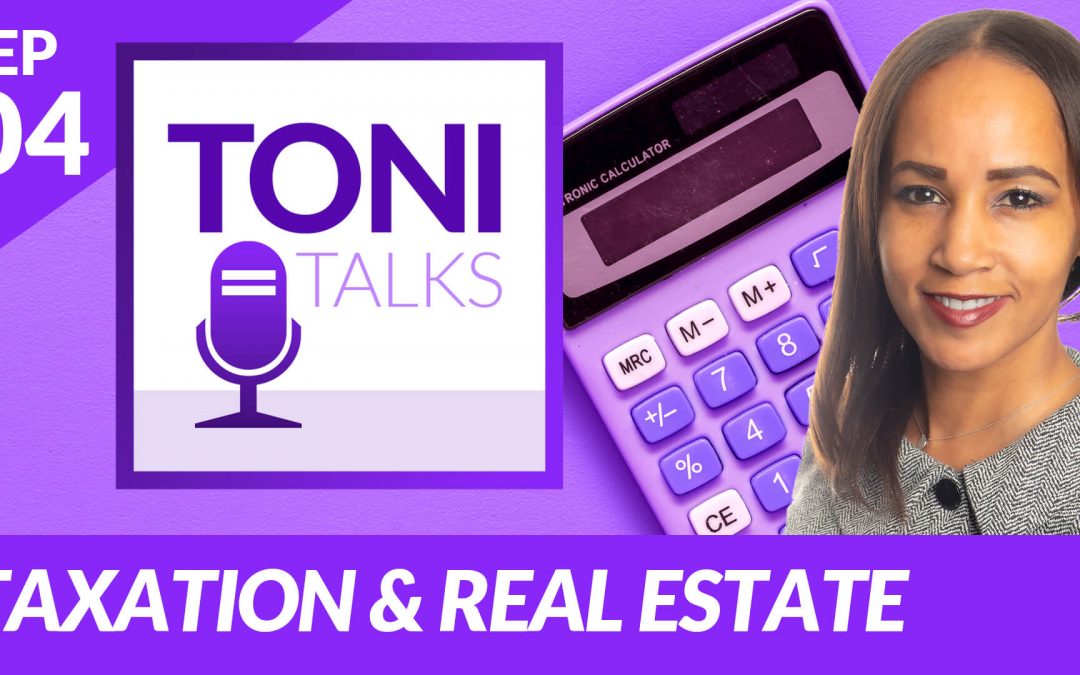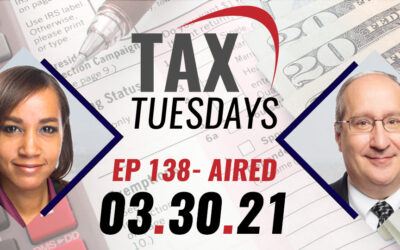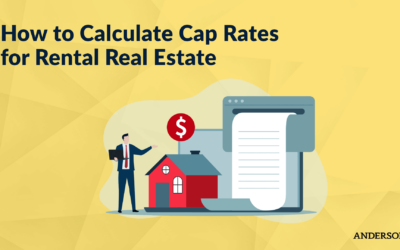In this episode of Toni Talks, enrolled agent (EA) Toni Covey is joined by special guests Gary McHenry, CPA, and Carl Zoellner, Esq., to break down the different ways real estate can be taxed.
Updated September 29, 2020
Since many of our clients here at Anderson specialize in real estate investing, a common question I receive is: “What will the taxes be when I sell this piece of property?” It’s a very open-ended question with many moving parts, so let’s try to nail down the nuances of real estate taxation.
A good place to start is: what’s your intention for the property? Do you intend to hold onto it in the long-term as a rental, or do you plan on flipping it?
Flipping
If you’re entering into a real estate transaction with the intention of buying, improving, then selling the real estate, that renders the property itself as “inventory.” Right off the bat, this gives us an idea of what types of taxes will apply — not necessarily how much you’ll pay in taxes.
It’s important to note the differences in taxation depending on the real estate activity. Property held as inventory to resell is treated differently tax-wise than investment property. When you’re flipping, all the costs associated with acquiring and improving the property become inventory costs. This makes up your basis in the property to offset your proceeds on the sale. Your basis is then used to calculate your gain on the sale, which is taxed as ordinary income to you because flipping is an active business. When flipping real estate, improvement costs are not deductible or depreciable.
The Importance of Intent
Sometimes, an investor may buy a piece of real estate with the intention to flip it; however, the markets or other factors may change, resulting in the real estate shifting from a flip to a short-term rental. While this may seem like the property has shifted from active to passive income with the transition to a short-term rental, the IRS thinks otherwise.
Intent is important to the IRS. Even if the property is a short-term rental, if your intention when you bought it was to sell it, then it’s inventory. If you intended to sell, it’s not a capital asset that can be depreciated.
It is possible to change your mind, but you would need to do the due diligence of actually changing your business plan in that case. For example, there was a case with the IRS of a man who initially purchased property to sell it, but then converted it to a rental for one reason or another. Year after year, the man had environmental studies conducted on the property to determine if it was viable to sell the property in that year. The IRS used this to prove that his intent never changed — he always intended to sell the property.
Dealer Status
Depending on the type of real estate activities you’re conducting, it’s important to make sure those activities are happening under the appropriate entity. Otherwise, you have to look out for being tagged as a dealer by the IRS, also known as dealer status. There are multiple pitfalls that come with dealer status.
If you’re tagged as a dealer by the IRS, that means you’re subject to self-employment (SE) taxes. These amount to about 15%. Moreover, if you’re deemed a dealer, you lose the ability to use 1031 exchanges, can’t sell on installment, can’t take depreciation expense, and lose the ability to get passive income from your real estate.
Ultimately, dealer status is about frequency. If this is your main business, you may need to consider moving that activity into a business entity. Here at Anderson, we would recommend a C- or S-corporation.
Capital Gains Tax Rates
The benefit of real estate being treated as a capital asset is that, when it’s treated as a passive activity, it’s taxed at the favorable capital gains rates. With ordinary (active) income, your tax rate could be as high as 37%. Capital gains tax rates, however, are either 0%, 15%, or 20%. The highest rate you would pay on capital gains is 20%.
Sometimes, there’s confusion about capital gains taxes. Some clients have asked whether these capital gains taxes are added onto their normal income tax rates. In short: no. They’re two separate taxes and either one or the other will apply to an individual income source, not both.
Sale of a Primary Residence
Another common question I receive involves the sale of a client’s primary residence. With this situation, I always highlight the Section 121 exclusion. Because property can appreciate greatly if you live in a home for a long time, each taxpayer receives a $250,000 exclusion of appreciation gain on that property ($500,000 for married-joint filers). This amount is excluded from taxation
If you’re interested in turning your primary residence into a rental, be aware that, when it comes to taxation, it’s not the best idea to just move out and put the house on the rental market. One strategy is to sell your residence to your S-corporation with the Section 121 exclusion. The S-corp will receive a step-up in basis to the fair market value, and you’ll receive higher depreciation. Furthermore, you could then complete a 1031 exchange with that property, which is only available to investment properties.
As always, take advantage of our free educational content and every other Tuesday we have Toby’s Tax Tuesday, a great educational series. Our Structure Implementation Series answers your questions about how to structure your business entities to protect you and your assets.
Additional Resources:
- Claim your FREE Strategy Session
- Join our next Tax & Asset Protection event to learn more advanced tax minimization & entity structuring strategies
- For all things investing, check out the Infinity Investing YouTube channel
- Subscribe to our YouTube channel to make sure you never miss the latest strategies & updates












